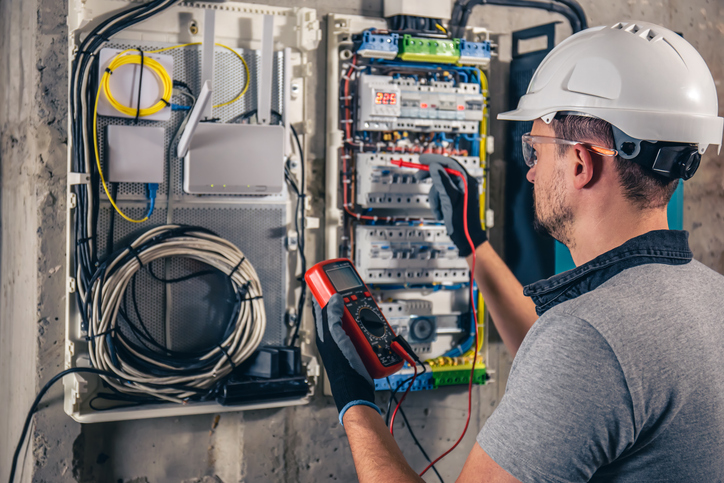Electricians play a crucial role in ensuring the safety and functionality of electrical systems in residential, commercial, and industrial settings. In Australia, the demand for skilled electricians is consistently high, driven by ongoing infrastructure projects, residential developments, and the need for maintenance and upgrades of existing electrical systems. You can find electrician jobs with an online search.

Education and Training Requirements
To become an electrician in Australia, individuals must complete a combination of formal education and practical training. Typically, aspiring electricians begin with an apprenticeship, which lasts about four years and combines on-the-job training with classroom instruction. During this period, apprentices learn the fundamentals of electrical work, including wiring, circuitry, safety protocols, and the use of specialized tools.
Licensing and Certification
After completing their apprenticeship, electricians must obtain a license to practice legally in Australia. The licensing requirements vary by state and territory but generally include passing a competency exam and demonstrating a certain number of hours of supervised work experience. Electricians can also pursue additional certifications to specialize in areas such as telecommunications, instrumentation, or renewable energy systems.
Job Opportunities and Work Environments
Electricians in Australia can work in various settings, each offering unique challenges and opportunities. Residential electricians focus on installing, maintaining, and repairing electrical systems in homes. Commercial electricians work on larger projects, such as office buildings, retail centers, and schools. Industrial electricians deal with complex systems in factories, power plants, and mining operations. Additionally, there are opportunities in specialized fields like marine and aviation electrical work.
Salary and Job Outlook
Electricians in Australia enjoy competitive salaries, with earnings varying based on experience, location, and specialization. According to recent data, the average salary for an electrician is around AUD 70,000 to AUD 90,000 per year. Experienced electricians, particularly those in specialized fields or those running their own businesses, can earn significantly more. The job outlook for electricians remains positive, with steady growth expected due to ongoing construction and infrastructure projects, as well as advancements in renewable energy technologies.
Challenges and Rewards of the Profession
The electrician profession comes with its share of challenges and rewards. On the challenging side, electricians often work in physically demanding and sometimes hazardous environments, requiring strict adherence to safety protocols. They must stay updated with evolving technologies and industry standards. However, the profession is also highly rewarding, offering job security, the potential for self-employment, and the satisfaction of solving complex problems and contributing to essential services.
Career Advancement and Specialization
Electricians have numerous opportunities for career advancement and specialization. Experienced electricians can move into supervisory or management roles, oversee projects, or start their own businesses. Specializing in areas such as solar energy, home automation, or industrial control systems can further enhance an electrician’s career prospects and earning potential. Continuous professional development and additional certifications are key to advancing in the field.
Conclusion
Electrician jobs in Australia offer a dynamic and rewarding career path for those interested in working with electrical systems. With strong demand, competitive salaries, and various opportunities for specialization and advancement, the profession provides a stable and fulfilling career choice. Aspiring electricians should focus on acquiring the necessary education, training, and licenses to succeed in this essential and ever-evolving industry.



